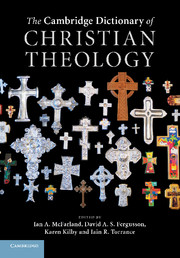D
Published online by Cambridge University Press: 05 June 2012
Summary
Dalit Theology Dalits (literally meaning ‘broken’ or ‘crushed ones’) refer to the 180 to 200 million outcaste people in India. Cast out of human society and yet appropriated as slaves of the dominant Hindu caste communities, they were traditionally treated as untouchable and unapproachable because of their polluted status in the eyes of the Hindu caste communities. Even though the practice of untouchability was outlawed and a provision of reservation (affirmative action) was introduced through the Indian Constitution in 1950, Dalits continue to suffer under the cumulative effects of colossal economic marginalization and multi-layered social oppression brought on by the three millennia-old hierarchical, discriminatory, and comprehensive caste system.
In this historical context Dalit theology emerged in the 1980s as a liberation strand of Indian contextual thinking, reflecting upon the ongoing Christian mission of resisting oppression and advancing freedom, with special reference to the ‘broken people’. Dalit theology developed in dialogue with liberation theology in Latin America and Black theology in the USA. It also reflects a long history of Indian Christian attempts to inculturate the message of Christianity into the social, cultural, and historical contexts of South Asia (Inculturation). These theological currents aided in its oppositional stance towards forms of missionary and western theology that tended to be highly individualistic and calculatingly ahistorical.
Dalit theology correlates the ‘pain-pathos’ of those marginalized by the scars of untouchability with the hope of the Christian Gospel that encompasses and empowers them on a path towards overcoming the spirit of brokenness and celebrating the promise of new life in Jesus Christ.
- Type
- Chapter
- Information
- The Cambridge Dictionary of Christian Theology , pp. 128 - 151Publisher: Cambridge University PressPrint publication year: 2011



